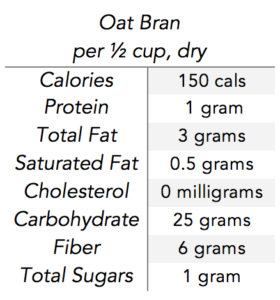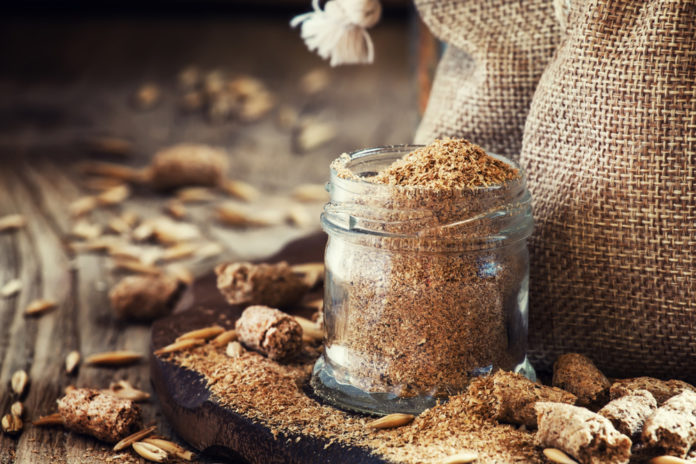Oat Bran 101
Oat bran is suggestive to its processing modality and structure, solely containing the bran of a grain or kernel. The urge of consuming “whole grains” keeps surfacing notably to its high nutritional value and benefits. But when it comes to basic whole grain anatomy – containing the bran, endosperm, and germ – oat bran falls slightly short and is not actually considered a whole grain (like rolled oats). But not to discourage or undermine oat bran, as the stripped down oat still holds a high nutritional value as indicated below.

*Adapted from USDA’s National Nutrient Database
**Nutritional values indicated in its dry form, equivalent to one cup cooked
In addition to prominent macronutrients, oat bran is a rich source of iron, magnesium, phosphorous, zinc, copper, manganese, selenium, potassium, and thiamin. Oat bran further offers the so-called “healthy” fats recognized as monounsaturated and polyunsaturated fat, further divided into omega-3 and omega-6 fatty acids.
The Health Benefits of Oat Bran
Weight Loss
The high fiber content in oat bran may aid in weight loss! Statistics have suggested diets rich in fiber contribute to healthier body mass indexes (BMIs) compared to low fiber diets. The occurrence may be explained by fiber’s ability to create satiety, or the body’s feeling of fullness, which may reduce the risk of overeating on calorically-dense foods. Foods rich in fiber also tend to be low in calories, keeping calories moderated and in check.
Digestive Health
Fiber is notoriously known for its role in bowel regularity. High intake of fiber, with adequate water intake, offers stool bulk and reduces the risk of constipation. High fiber intake may further reduce the risk of both colon cancer and hemorrhoids.
Heart-Protective
Also related to its fiber content, a “hearty” bowl of oat bran lowers LDL or “bad” cholesterol. The prominent soluble fiber in oat bran, known as beta-glucan, works to reduce cholesterol in a number of ways. Firstly, when fiber (especially soluble fiber) is consumed, it has the ability to bind with cholesterol and excrete it from the body. Additionally, it may limit the cholesterol from foods within the diet. The dual mechanisms can foster healthy cholesterol levels, ultimately reducing the risk of heart disease including stroke and heart attack.
Diabetes Management
Though carbohydrate sources are the sole contributors of blood sugar, the intake of carb-rich oat bran may offer improvements in diabetes management. Oat bran has shown to slow down the digestion of carbs, thus reducing harmful spikes and drops in blood sugar. Oat bran may further increase the sensitivity of insulin, the hormone responsible for assisting glucose into the body’s cells from the blood, therefore lowering blood sugar concentrations.
Well-Rounded
Obtaining the health benefits is simple with oat bran, considering it has a wide variety of uses. Oat bran can be enjoyed on its own, added to yogurt, mixed into smoothies, baked into muffins or pancakes, or incorporated into a health-ified, homemade granola!






